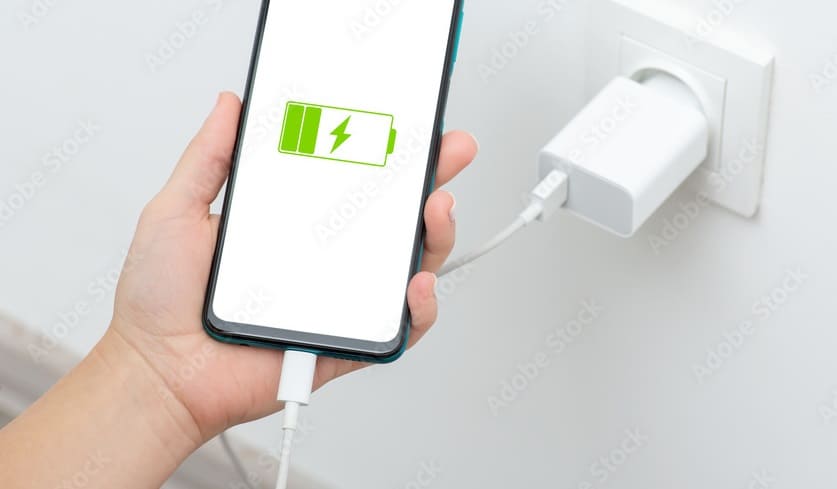In today’s fast-paced world, a slow phone charger can feel like the ultimate frustration. Whether you’re in a rush or just want to avoid that dreaded low battery warning, finding a charger that delivers both speed and safety is essential. But with so many chargers on the market, how do you know which one is right for your phone? Don’t worry—I’ve got you covered with this guide on how to pick the charger that’s both fast and safe for your device.
Understand Your Phone’s Charging Specifications
Before you dive into the world of chargers, the first step is to understand your phone’s charging capabilities. Not all phones charge the same way, and some can handle faster charging than others. Key specs to look for:
- Voltage (V): This tells you how much power the charger is sending to your phone. Most chargers use 5V to 9V, but fast chargers often go higher.
- Current (A): The more amps, the faster the charge. A typical charger might give 1A or 2A, but 3A chargers can charge faster.
- Wattage (W): This is the total power a charger provides. For example, a charger with 18W is faster than one with 5W.
Check your phone’s manual or manufacturer’s website to see how much power it can safely handle. Using a charger that matches your phone’s charging speed will make a big difference.
Choose the Right Charging Standard
Not all fast chargers are created equal. There are different charging technologies that power your phone at different speeds. Here are a few of the most common ones:
- Qualcomm Quick Charge: This is popular among Android phones, speeding things up with higher voltage.
- USB Power Delivery (USB-PD): Used by many modern phones, including iPhones, this standard delivers more power for faster charging.
- Proprietary Systems (OnePlus, Huawei, Samsung): Some brands, like OnePlus, have their own tech to charge faster, like Warp Charge or SuperCharge.
It’s important to choose a charger that supports your phone’s charging technology to get the fastest speeds without compromising safety.
Look for Certifications and Safety Features
As much as we want fast charging, we don’t want to sacrifice our phone’s health. Charging too quickly or using the wrong charger can lead to overheating and degrade your phone’s battery over time. Look for chargers with these safety features:
- Overcharge Protection: Good chargers will stop charging once your phone hits 100%, preventing overcharging.
- Overheating Protection: Fast charging can heat up your phone, but with the right charger, it won’t get too hot to handle.
- Certified Chargers: Look for chargers that are UL-certified or have Apple’s MFi (Made for iPhone) certification. This ensures they meet safety standards.
The right charger will keep your phone safe while charging it fast, so you can enjoy a long-lasting battery without worry.
Consider the Cable Quality
It’s easy to overlook the cable, but it plays a crucial role in how fast your phone charges. A low-quality or mismatched cable can slow down the process or even harm your phone. What to look for in a cable:
- Rated for Fast Charging: Make sure the cable can handle high currents (typically 3A or more) for faster charging.
- Durability: A cheap cable is prone to fraying, and nobody wants to deal with a broken charging cable halfway through the day. Look for cables that are well-built and reinforced.
A solid, high-quality cable is just as important as the charger itself in ensuring your phone charges safely and quickly.
Power Output Matters
The charger’s power output plays a big role in determining how quickly your phone charges. If the charger isn’t powerful enough, your phone will charge slowly—even if it supports fast charging. Here’s a general breakdown:
- 5W to 18W: Standard charging, fine for everyday use.
- 20W to 30W: Fast charging, especially for newer devices.
- 30W and above: Super-fast charging for flagship phones.
Make sure the charger provides enough wattage to keep up with your phone’s fast-charging capabilities.
Avoid Cheap, Non-Brand Chargers
We’ve all seen those tempting super-cheap chargers, but be cautious—they may not meet safety standards, and using one could damage your phone or battery in the long run. Opt for trusted brands or chargers that are certified by organizations like UL or MFi to ensure quality.
Wireless Charging vs. Wired Charging
Wireless charging is a convenient option, but it’s usually slower than wired charging. If speed is your priority, a wired charger will get the job done faster. That said, wireless charging is a great option for overnight charging or when you’re at home and need a simple charging solution.
For wireless charging, make sure the pad or stand supports the Qi standard (the universal wireless charging standard) and delivers enough power—10W or more for faster charging.
Charging Accessories and Power Banks
If you’re always on the go, a portable power bank can be a lifesaver. Look for a power bank that supports fast charging and is compatible with your phone’s charging standard. It’ll keep you powered up without slowing you down.
Conclusion:
Finding the right charger isn’t just about speed—it’s about making sure your phone stays safe while it powers up quickly. By checking your phone’s charging specifications, picking the right technology, and using high-quality cables and certified chargers, you can enjoy fast, safe charging. Remember, a good charger isn’t just an accessory—it’s an investment in the longevity of your phone’s battery. So, take the time to choose wisely, and keep your phone running smoothly for years to come!
Also Read:

